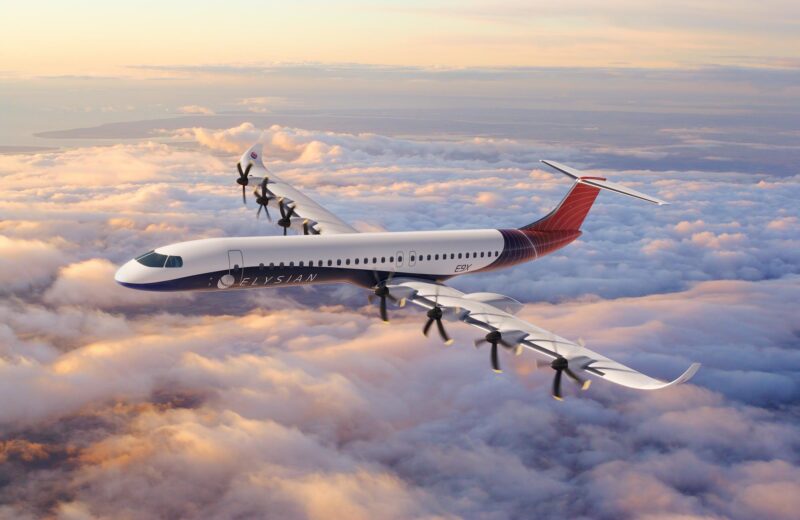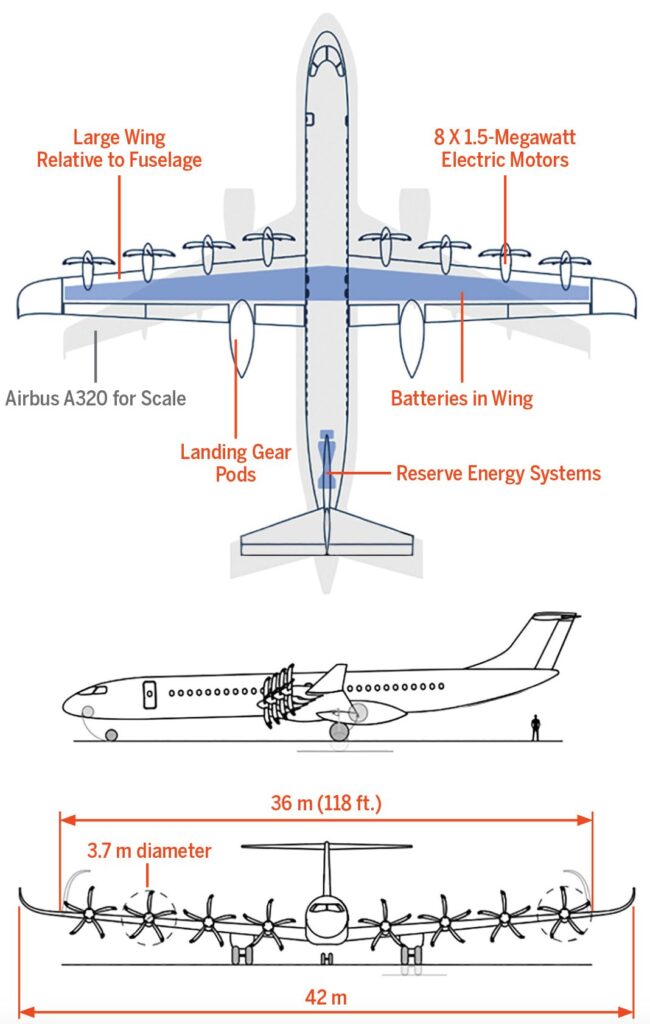Elysian Aircraft emerges from stealth mode

Flying in the face of popular belief that battery-electric means short range, Elysian Aircraft has emerged from stealth mode with a 90-seat all-electric liner that it says will fly 500 miles.
The five-person company unveiled its vision at the American Institute of Aeronautics and Astronautics (AIAA) conference in Orlando, Florida, on January 10, 2024. The firm is entering a market that has seen a number of other hopefuls switch to hybrid from pure electric due to range concerns, especially those with larger aircraft designs. Despite this Elysian has just published two research papers in collaboration with Delft University of Technology (TU Delft) that argue it is possible to develop a pure electric regional aircraft within a decade.
Reynard de Vries, director of design and engineering at Elysian said: “If you want to make a significant impact on the sector as a whole, then you need to electrify flights up to 1,000 km. Then you’re talking about roughly one-fifth of aviation emissions and about half of all passenger flights. We found design space where we believe that, with the right design, a battery-electric aircraft can fly much farther than most studies suggest and also carry many more passengers.”

Elysian’s founders have not opted to electrify a modern turboprop, but instead were inspired by the first generation of narrowbody jets. These jets were fuel inefficient, but were designed for long-ranges. The aircraft, which features four propellors on either wing, will be powered by batteries with an energy density of 360Wh/k.
Rob Wolleswinkel co-CEO and chief technology officer said: “Instead of a turboprop aircraft, we considered first-generation narrowbody jets as a reference point. While those jets were fuel-inefficient, they were designed for long ranges and carried a high energy mass. That served as inspiration for our electric aircraft design.”
The project is backed by Panta Holdings, a Dutch investment firm which also owns Fokker Services and Fokker Techniek. It also has support from TU Delft and the University of Twente among others.






